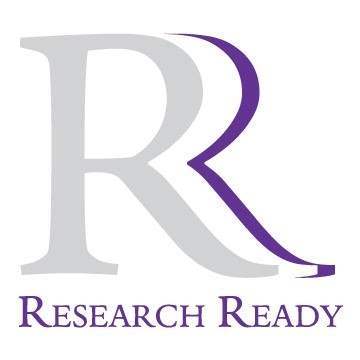Research Mentor Strengths and Weaknesses
Assessing Strengths and Weaknesses
The following module will assist the mentor and mentee in assessing their strengths and weaknesses in the area of research in order to develop a working path forward toward research.
Learning Objectives
- Explain the Research Mentorship Strengths and Weaknesses Assessment form
- Provide direction in completing the Research Mentorship Strengths and Weaknesses Assessment form
Introduction
Each mentor and mentee will come to the table with varying level of comfort, knowledge and expertise in the area of research. The Research Mentorship Strengths and Weaknesses Assessment form is provided to identify individual strengths, areas needing improvement as well as areas of interest of both parties. Mentors and mentees can then use this information to devise a realistic, concise blueprint to follow.
Click here to access form: (Insert link to Research Mentorship Strengths and Weaknesses Assessment Form)
*Each section of the Research Mentorship Strengths and Weaknesses Assessment Form is detailed below.
Contact Information and Role
When completing the Research Mentorship Strengths and Weaknesses Assessment form, please list current contact information as well as your role at GCU, your college/courses taught, and whether you wish to be a research mentor or are seeking a research mentor.
What is your research experience?
In this section share your level of research experience. Have you written research for publication? Are you currently published? If so, please list all publications.
Describe your research goals and reason for seeking a research mentorship
When completing this section, think about what it is you wish to accomplish by entering into a research mentorship. Do you want to pursue a research publication? Are you interested in qualitative or quantitate research? Is your interest in being a first author or subsequent author? What are your professional reasons for wanting to mentor or have a research mentor?
It is important to carefully evaluate your goals and reasons for engaging in a research mentorship so both party’s needs are taken into consideration during the planning stage and throughout the process.
Areas of Interest
What research focus are you interested in pursuing? Do you wish to focus on SoTL (Scholarlship of Teaching and Learning) topics or content specific research?
Availability
When providing your availability as a mentor or mentee, be realistic in evaluating any additional obligations beyond your regular work duties as well as the overall length of time you are willing to commit. Think about how often you are able to meet (weekly, biweekly, etc.) as well as how you wish to meet with your mentor/mentee (in person, Zoom, Microsoft Teams, etc.).
Strengths and Weaknesses Assessment
As you review the list of research activities, consider your experience in each area to help you assess your level of comfort. Be mindful that experience and level of comfort do not necessarily have to align. For example, while you may lack experience in writing specific areas of a research article or in actually editing one, you may feel comfortable in your writing and/or editing skills in general. This may lead you to rate yourself higher in certain areas. Again, be realistic in your evaluation so the information provided can be used to develop a workable plan.
List any additional research skills or abilities you possess
This section may be useful in clarifying areas such as the example given above. If you feel you are a strong writer albeit not in research, elaborate here. How so? What other skills do you bring to the table that may not have been demonstrated in the Strengths and Weaknesses assessment?
Please share any additional information that would be beneficial to the research mentorship
What else do you feel is important to share with your mentor/mentee? Do you have exceptional time management skills? Are there any obstacles you foresee that would be important to share? Do not hesitate to use this space to provide details that may be beneficial for both parties in establishing a feasible research plan.
Summary
In closing, this form is designed for mentors and mentees to effectively and realistically evaluate the reasons for pursuing a mentorship, availability, as well as particular skills and/or abilities that lend to a research project. With this information in hand, both parties can collaborate in creating an effective, mutually beneficial plan forward.
---------- Grouped Links ---------
numOfValidGroupedLinks: 6
Module 1. Introduction to Research Mentorship: https://cirt.gcu.edu/research/develop/research_ready/mentorship/introduction
Module 2. Why Mentorship: https://cirt.gcu.edu/research/developmentresources/research_readyhttps://cirt.gcu.edu/research/develop/research_ready/mentorship/why
Module 3. Roles and Responsibilities: https://cirt.gcu.edu/research/develop/research_ready/mentorship/stages
Module 4. Research Mentor Strengths and Weaknesses: https://cirt.gcu.edu/research/develop/research_ready/mentorship/strengths_weaknesses
Module 5. CIRT Resources: https://cirt.gcu.edu/research/develop/research_ready/mentorship/resource
Module 6. Summary and Assessment: https://cirt.gcu.edu/research/develop/research_ready/mentorship/summary
----------------------------------
-------------- Links -------------
numOfValidLinks: 0
----------------------------------
this.updated: True
links.count: 0
obj.hasPermission(enums.PermissionVerb.Edit): False
numOfValidLinks: 0
linksJSON.groups.count: 1
numOfValidGroupedLinks: 6
numOfValidGroupedLinks -> numOfLinksToDisplay: 6
numOfLinksToDisplay = 6
this.layout = 2
- TrueFalse(True || !True && False)https://cirt.gcu.edu/research/develop/research_ready/mentorship/introduction2
- Module 1. Introduction to Research Mentorship TrueFalse(True || !True && False)https://cirt.gcu.edu/research/developmentresources/research_readyhttps://cirt.gcu.edu/research/develop/research_ready/mentorship/why2
- Module 2. Why Mentorship TrueFalse(True || !True && False)https://cirt.gcu.edu/research/develop/research_ready/mentorship/stages2
- Module 3. Roles and Responsibilities TrueFalse(True || !True && False)https://cirt.gcu.edu/research/develop/research_ready/mentorship/strengths_weaknesses2
- Module 4. Research Mentor Strengths and Weaknesses TrueFalse(True || !True && False)https://cirt.gcu.edu/research/develop/research_ready/mentorship/resource2
- Module 5. CIRT Resources TrueFalse(True || !True && False)https://cirt.gcu.edu/research/develop/research_ready/mentorship/summary2
- Module 6. Summary and Assessment
view = 2
numColumns = 1
lineBetween = 1
arrowStyle = 3
barStyle = 1
barColor = #470a68
results = 10
Page Options

